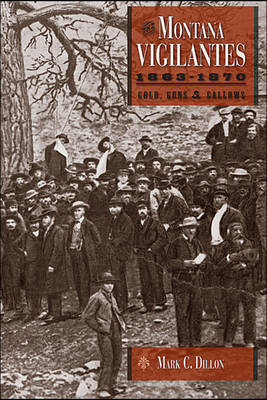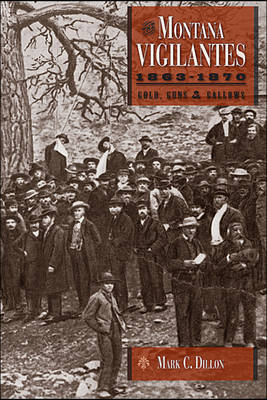
- Retrait gratuit dans votre magasin Club
- 7.000.000 titres dans notre catalogue
- Payer en toute sécurité
- Toujours un magasin près de chez vous
- Retrait gratuit dans votre magasin Club
- 7.000.000 titres dans notre catalogue
- Payer en toute sécurité
- Toujours un magasin près de chez vous
43,45 €
+ 86 points
Format
Description
Historians and novelists alike have described the vigilantism that took root in the gold-mining communities of Montana in the mid-1860s, but Mark C. Dillon is the first to examine the subject through the prism of American legal history, considering the state of criminal justice and law enforcement in the western territories and also trial procedures, gubernatorial politics, legislative enactments, and constitutional rights.
Using newspaper articles, diaries, letters, biographies, invoices, and books that speak to the compelling history of Montana's vigilantism in the 1860s, Dillon examines the conduct of the vigilantes in the context of the due process norms of the time. He implicates the influence of lawyers and judges who, like their non-lawyer counterparts, shaped history during the rush to earn fortunes in gold. Dillon's perspective as a state Supreme Court justice and legal historian uniquely illuminates the intersection of territorial politics, constitutional issues, corrupt law enforcement, and the basic need of citizenry for social order. This readable and well-directed analysis of the social and legal context that contributed to the rise of Montana vigilante groups will be of interest to scholars and general readers interested in Western history, law, and criminal justice for years to come.
Using newspaper articles, diaries, letters, biographies, invoices, and books that speak to the compelling history of Montana's vigilantism in the 1860s, Dillon examines the conduct of the vigilantes in the context of the due process norms of the time. He implicates the influence of lawyers and judges who, like their non-lawyer counterparts, shaped history during the rush to earn fortunes in gold. Dillon's perspective as a state Supreme Court justice and legal historian uniquely illuminates the intersection of territorial politics, constitutional issues, corrupt law enforcement, and the basic need of citizenry for social order. This readable and well-directed analysis of the social and legal context that contributed to the rise of Montana vigilante groups will be of interest to scholars and general readers interested in Western history, law, and criminal justice for years to come.
Spécifications
Parties prenantes
- Auteur(s) :
- Editeur:
Contenu
- Nombre de pages :
- 416
- Langue:
- Anglais
Caractéristiques
- EAN:
- 9780874219197
- Date de parution :
- 15-11-13
- Format:
- Livre relié
- Format numérique:
- Genaaid
- Dimensions :
- 168 mm x 241 mm
- Poids :
- 811 g







